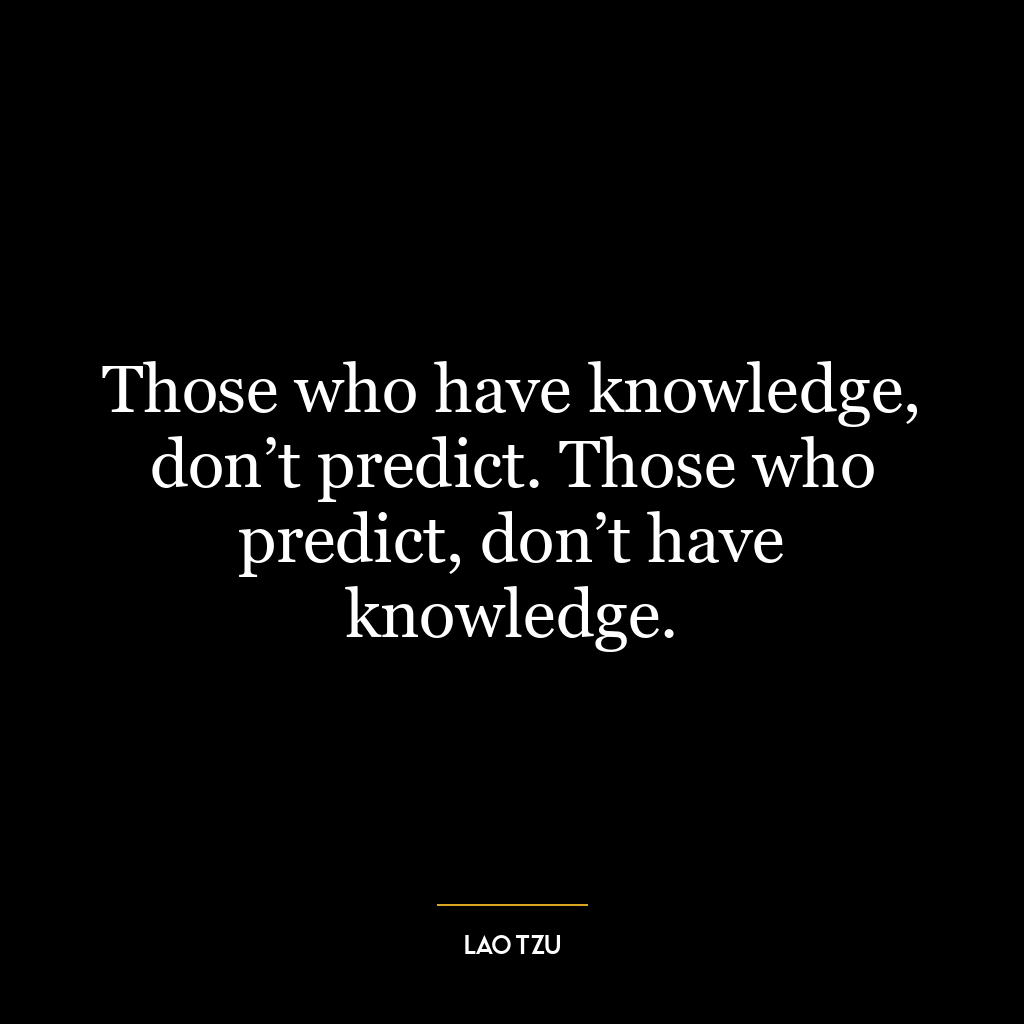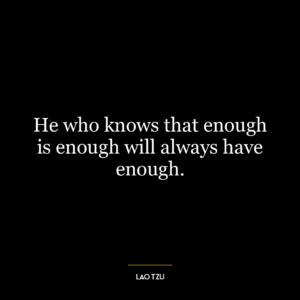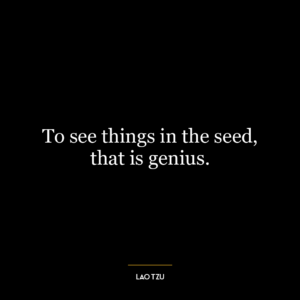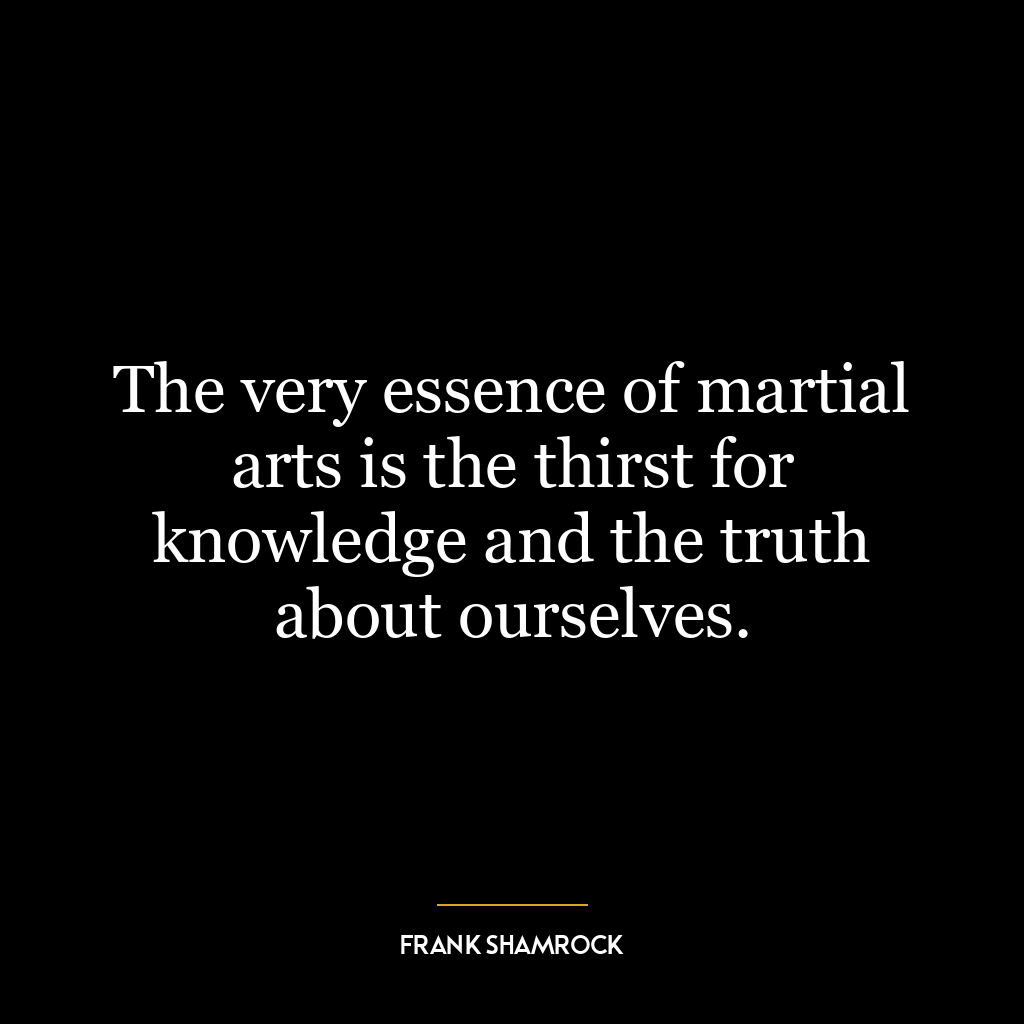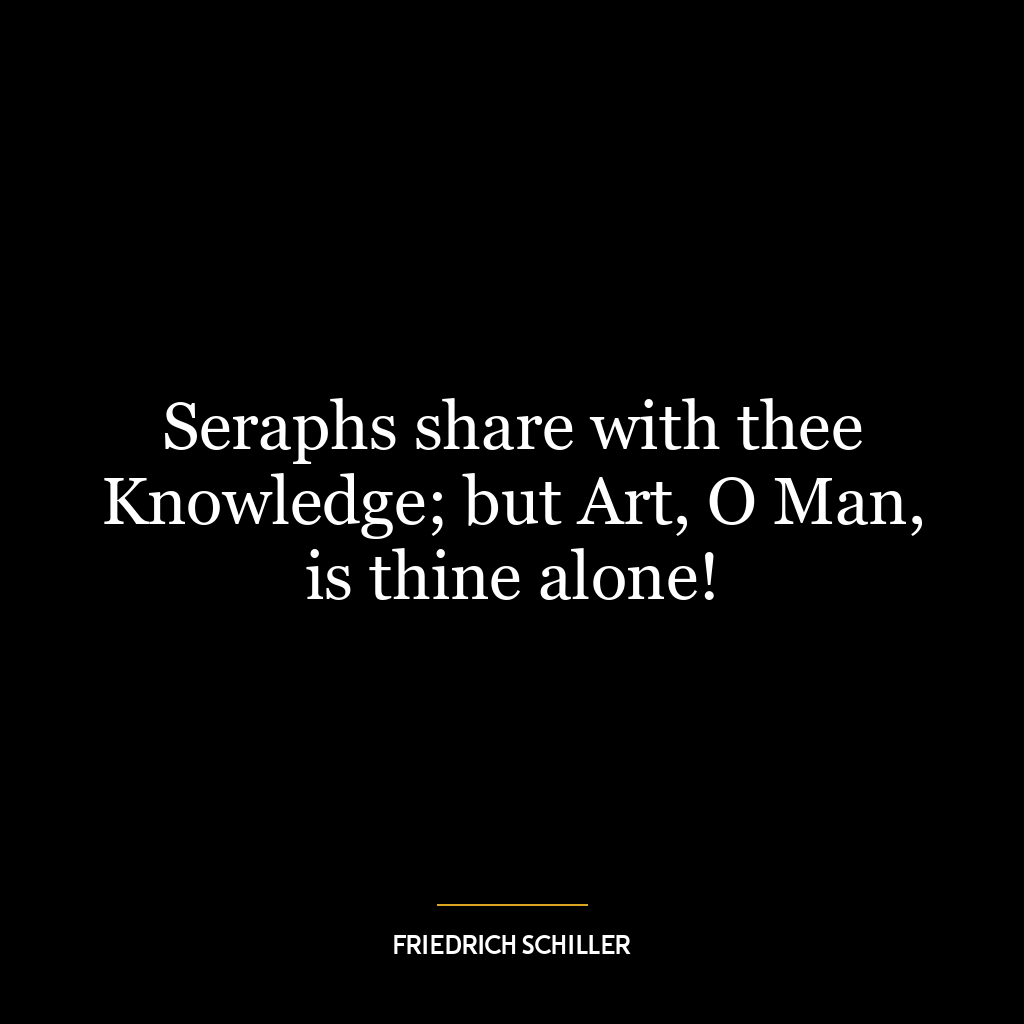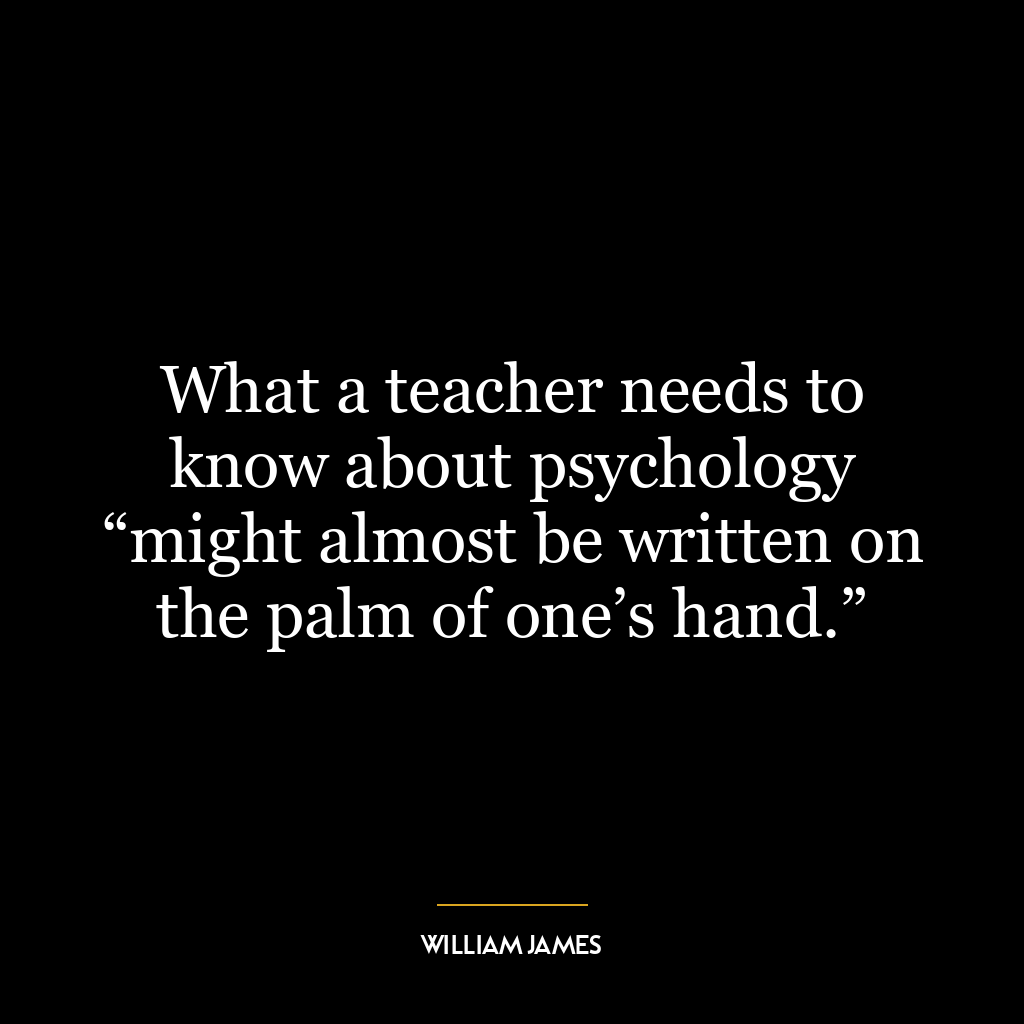Those who have knowledge, don’t predict. Those who predict, don’t have knowledge.
This quote by Lao Tzu suggests that true knowledge doesn’t involve prediction, but rather understanding and wisdom. In other words, those who truly understand a situation or a concept, do not need to make predictions, because they are aware of the complexities and variables that can influence outcomes. They understand that the future is uncertain and cannot be predicted with absolute certainty. On the other hand, those who often predict, according to Lao Tzu, may lack true knowledge. They may rely on assumptions, surface-level information, or oversimplifications, which can lead to inaccurate predictions and misunderstandings.
This quote can be interpreted as a caution against arrogance and overconfidence. It reminds us to be humble in the face of the unknown and to always seek deeper understanding rather than superficial predictions.
In the context of today’s fast-paced, information-saturated world, this quote can be a reminder to not get swept up in the constant stream of predictions and forecasts that we are bombarded with on a daily basis. These predictions, whether they’re about the economy, the environment, politics, or technology, are often based on limited information and can be misleading or inaccurate. Instead of relying on these predictions, we should strive to gain a deeper understanding of the issues at hand.
In terms of personal development, this quote can serve as a guide for how we approach learning and decision-making. Instead of seeking quick answers or making hasty predictions, we should strive to deepen our understanding, ask thoughtful questions, and embrace uncertainty. This could lead to more informed decisions, greater wisdom, and ultimately, personal growth.

